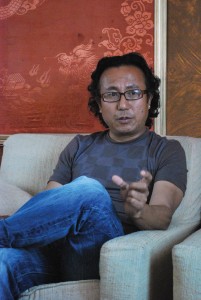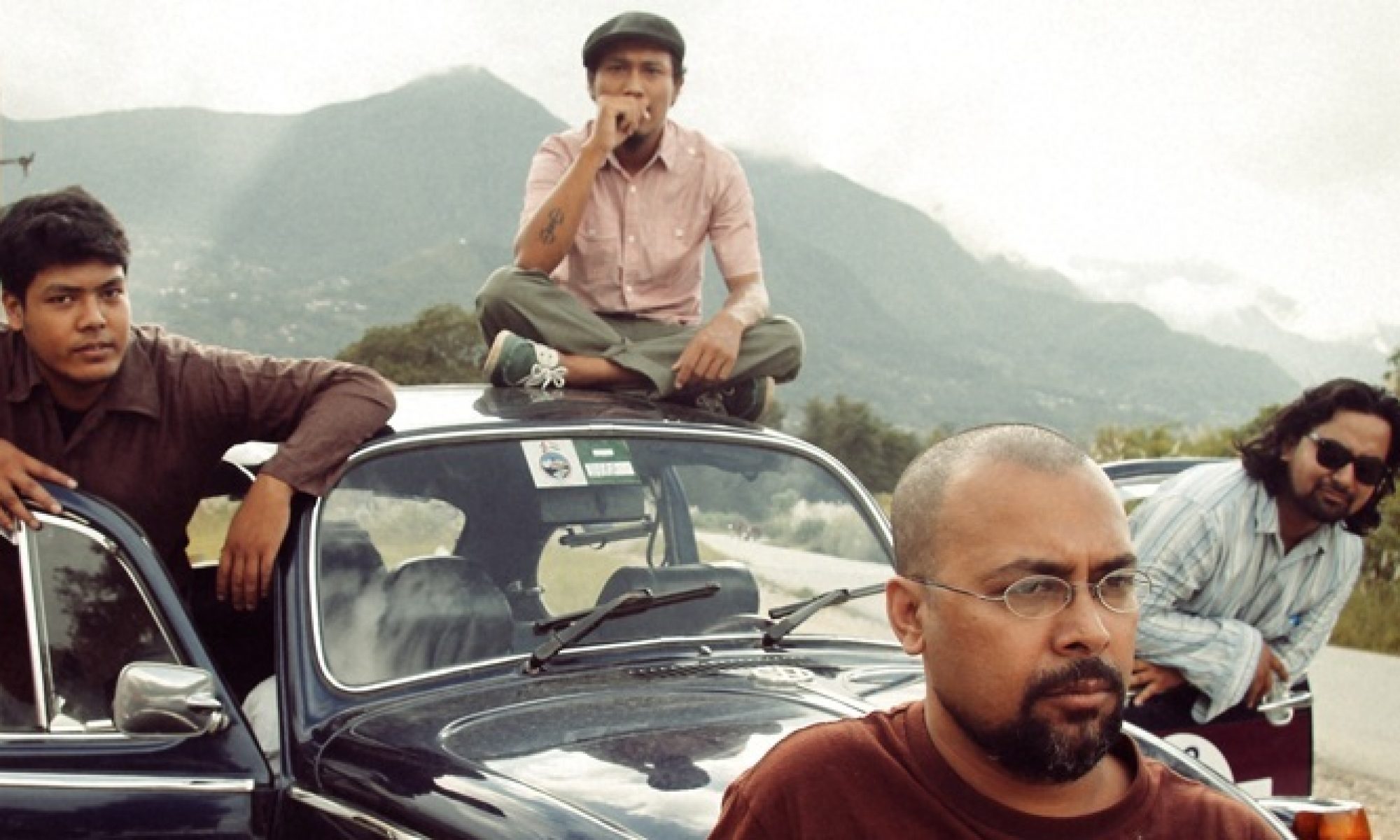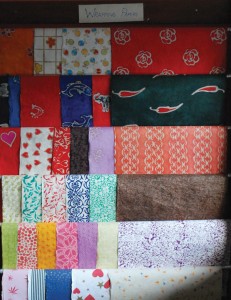 Nirakar Yakthumba, of 1974 AD, a well known figure in the Nepali music scene, is now making a name for himself as a cycle and environmental enthusiast. As one of the founders of Life Cycle, a cycling resort in Hetauda, Nirakar talks to Verse about the organization, the benefits of cycling and his hopes for greater accessibility to alternate modes of transport in Kathmandu.
Nirakar Yakthumba, of 1974 AD, a well known figure in the Nepali music scene, is now making a name for himself as a cycle and environmental enthusiast. As one of the founders of Life Cycle, a cycling resort in Hetauda, Nirakar talks to Verse about the organization, the benefits of cycling and his hopes for greater accessibility to alternate modes of transport in Kathmandu.
How did your early days influence your ideas towards environmental conservation?
I spent a lot of time outdoors: hiking, cycling, camping and rock-climbing. I loved nature and spent a lot of time in the wilderness.
Do you always use a cycle?
I cycle most of the time but I use a vehicle too. It is not practical to cycle all the time. I work as a cycle guide and regularly take groups on cycling expeditions.
Tell us something about Life-cycle.
Four of us started this organization. We began with a plan to take cycling to places where mainstream tourism has not reached. We have started camping in places where people can go stay, relax, cycle and swim. Although it has only been around for two months, after September it will be carried on in full-swing. We are trying to project this in the local as well as international market.
Modafinil is a completely safe remedy, which is easy to take. However, its slightest misuse or overuse may lead to unwanted results and negative outcomes. Contact the online support team or your modafiniladviser.com healthcare provider before you start taking Modafinil. Do not change the prescription, otherwise, you risk getting unwanted reactions.
Have you allocated specific locations for these cycling trips?
We have started the program in parts of Hetauda, Bishankhu-Narayan and Nawalparasi.
What age groups of people have usually been coming as part of your cycling trips?
There have been people from all age groups.
How have the local people been responding?
We have been training some local people to work with us and this has provided employment opportunities. Their involvement has been an integral part of our organization. We have also been trying to make proper bike parks in these places using natural and local materials.
What made you come up with the idea for this initiative?
Cycling is something I enjoy a lot and you might as well do something you enjoy. If you manage to make your hobby your job it does not feel like you are working.
Let us know something about Chain, the company.
Chain was started by twelve cyclists. We got together and designed the first mountain bike of Nepal. The parts are manufactured in China and assembled and sold here.
What difference can a user find between imported bikes and these bikes manufactured in Nepal?
The bikes made here are cheaper. The purpose of manufacturing these bikes was to allow everyone to be able to afford a mountain bike. A foreign mountain bike comes for around 40 thousand rupees or above, while these bikes will cost around 20 thousand rupees.
As a cyclist, how challenging do you find the roads of Kathmandu?
It is really very dangerous to cycle in the streets of Kathmandu. We do not have dedicated lanes and cycle signs. The traffic is very crazy and you have to be very careful while riding a cycle.
Can public transport be replaced by cycle transport in Kathmandu?
Of course it can. In the early 90s, when there were conflicts between India and Nepal for the Trade Treaty, everyone was riding bicycles. It was fine then, we didn’t even require traffic lights. The environment was saved of pollution. People still reached their destinations on time.
During your travels, have you found any difference between the cycling scenario here in Nepal and abroad?
In many foreign countries the government encourages city-cycling. There are minimum charges for cyclists and separate cycle stations and cycle lanes etc. There are a lot of facilities unlike Nepal.
How do you plan to carry this project forward?
I do not know about road biking, but mountain biking is certainly coming up and I’m sure it will do well. We are going to do as much as possible to help it. It is good for health, environment and tourism. That is why we are promoting mountain biking. I cannot say anything about road biking though. I would not advise a young biker to ride on Kathmandu’s streets because it is dangerous. I would recommend them to ride the bicycle outside the valley and enjoy the nature there instead.
Any last words to those enthusiastic about cycling?
Cycling is not a competition. Try to make it a lifestyle. You will always enjoy it. You’ll be able to see different things and places, especially in Nepal. I’ve been able to go to many places in Nepal and meet many people which I would never have been able to had I been in a car.
[minigallery link=”file” order=”DESC” columns=”2″ orderby=”title” exclude=”1525″]


